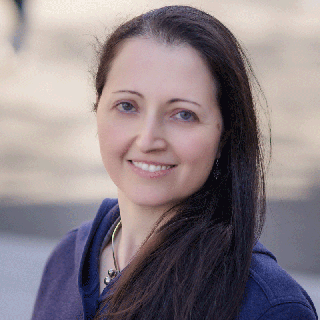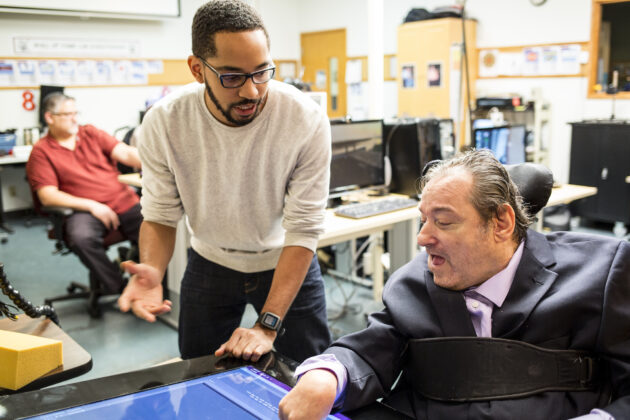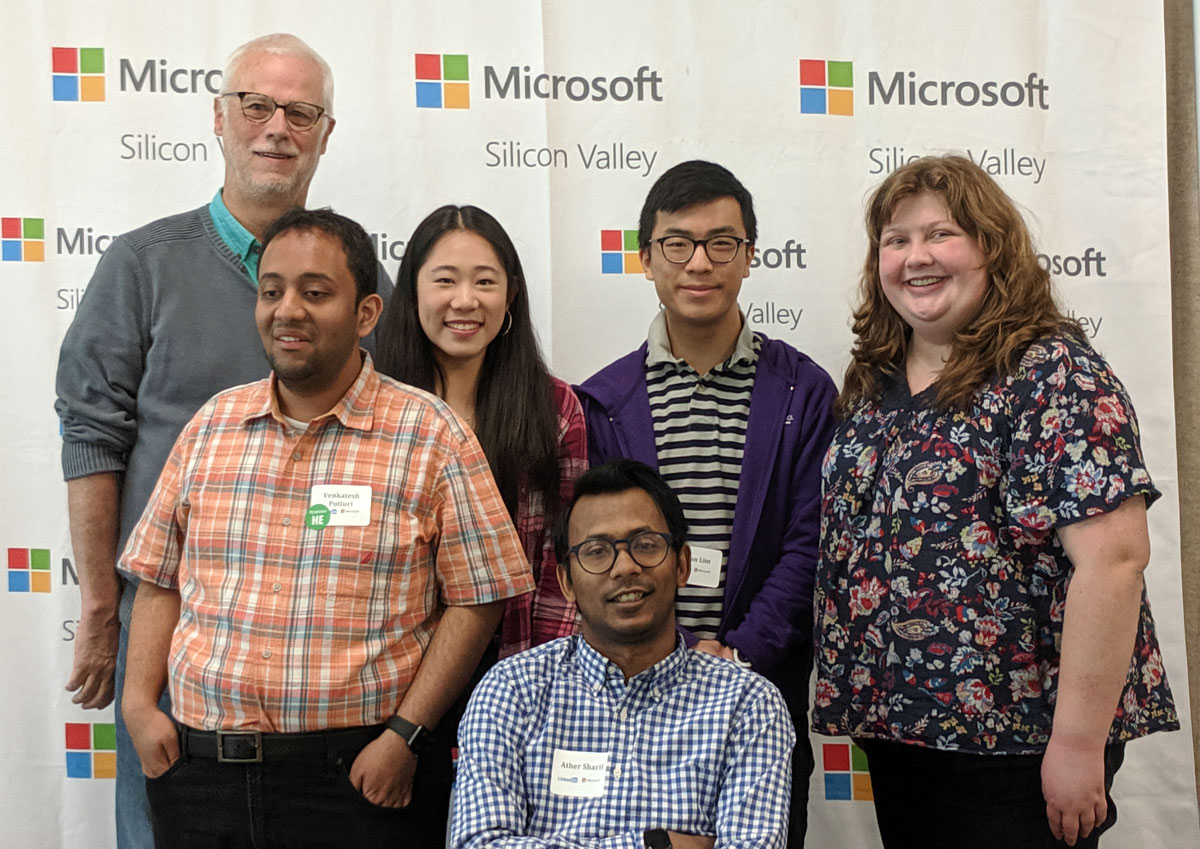May 30, 2024 The closing event for CREATE’s Community Day 2024 on May 20th, this research showcase was co-sponsored by HuskyADAPT. Posters and presentations A11yBoard: Making Presentation Slideshow Reading and Editing Accessible to Blind Users Designing human-AI and multimodal interactions to make presentation slideshow reading and editing accessible. Zhuohao (Jerry) Zhang, Gene S-H Kim, Jacob O. Wobbrock A11yBoard poster Ability-Based Design Mobile Toolkit: Developer Support for Runtime Interface Adaptation Based on Users’ Abilities To enable apps to respond to users’…
Category: Partners-industry
CREATE AI+Accessibility Hackfest – Winter ’24
March 6, 2024 – post-event update In March 2024, CREATE gathered with industry and community partners for a hackfest to explore and invent the future of AI and Accessibility. The event featured invited speakers Heather Nolis, Ian Stenseng, and Shaun Kane and exciting workshops on building custom GPT and creating accessible Jupyter notebooks. See the full lineup of brainstorming, hacking, and presentation sessions. The 3-day hackfest attendees included those with no experience in coding or hacking, others with advanced experience in…
Virtual Traffic Stop App Aims to Ease Tensions, Aid Communication
October 2, 2023 The designers of the Virtual Traffic Stop app aim to ease tensions and prevent misunderstandings between drivers and law enforcement during traffic stops. For Hard-of-Hearing or Deaf drivers, the app can be used to communicate with law enforcement via chat during the video. Users can add family members and invite them to the chat for additional assistance. A Gainesville Florida K-12 school has announced their endorsement of Virtual Traffic Stop and has encouraged parents and their children…
Accessible eSports Showcase 2023: Event Recap
In April 2023, CREATE hosted its first ever Accessible eSports Showcase event, bringing together members of the CREATE community, local community organizations, tech and games Corporate Partners, and folks from all over the Seattle area looking to learn about and celebrate ongoing strides being made in making video games more inclusive and accessible to people with disabilities. Zillow Commons in the Bill & Melinda Gates Center was transformed into a gamer’s playground with big-screen projections of racing and party games,…
Community Day & Research Showcase 2022
CREATE’s 2nd Annual Community Day was well attended with 100 registered participants and presenters. We’re pleased with the show of strong community, the return to in-person (and also virtual) panel discussions, and a research showcase of 14 project teams. This year’s panels addressed the disproportionate impact of access to assistive technology on children with disabilities in BIPOC and immigrant communities as well as the issues that arise with the intersection of accessibility and biometric technologies. We were honored to host…
CREATE Community Day & Research Showcase 2021
CREATE Community Day 2021 was a rich program that included an important discussion of the concerns and approaches to just, sustainable accessibility research that puts the needs of community members with disabilities front and center.
CREATE members highlighted what their labs are doing, with time to hear about a variety of individual projects. Read on for a sample of the presentations.
Accessible CS Education workshop focuses on inclusive experiences
Amid a global pandemic, innovative thinkers have been hard at work developing plans to improve equity in modern learning environments. The Accessible Computer Science Education Fall Workshop was held November 17-19, 2020, and jointly sponsored by Microsoft, The Coleman Institute for Cognitive Disabilities, and CREATE. Each day of the event focused on strategies to improve classroom experiences for students and faculty with disabilities. You can watch recorded sessions where speakers provided a wide range of perspectives on computer science pedagogy…
Caspi to lead collaborative $11.45M Transportation Data Equity Initiative

Tools like Google Directions and OneBusAway give up-to-date travel and transit information to make regional transit easier for most. But mobility applications focus on efficiency and shortest paths, leaving out information critical to people with disabilities, older adults, and anybody needing more support. The Taskar Center for Accessible Technology, led by CREATE Associate Director for Translation Anat Caspi, and the UW’s Washington State Transportation Center will work with Microsoft, Google, the Washington Department of Transportation and other public and private…
Forbes’ Mindset Matters highlights CREATE as the innovation industry needs
Jonathan Kaufman, in Forbes magazine’s Mindset Matters column, calls for innovation to make workplaces inclusive and accessible. In his May 31, 2020 column, An Object Lesson For Business, And Innovation In The Age Of A Pandemic, he highlights the partnership between CREATE and Microsoft as a prime example of how we can “redefine the very nature of work and develop the tools needed to create a culture of innovation.” “It is at this moment that offers organizational leadership a means…
New UW center bankrolled by Microsoft aims to make technology more accessible to disabled people
The Seattle Times | May 28, 2020 University of Washington professor Jacob Wobbrock figures the best way to make technology more accessible to disabled people is to anticipate their needs from the very beginning. “The world we live in is built on certain assumptions,’’ Wobbrock said. “If we question those assumptions right from the start when we design things, then suddenly things are accessible.’’ The Center for Research and Education on Accessible Technology and Experience (CREATE) is launching with a nine-member,…
Microsoft invests $2.5M in CREATE, a new center for accessible tech at the University of Washington

GeekWire | May 28, 2020 Microsoft and the UW have long been aligned in a shared commitment to accessible technology and a world that is more accessible through technology. With a leadership team from six campus departments in three different colleges, CREATE will build upon the UW’s existing work in education, research and translation. Read the full GeekWire article.
$2.5 million inaugural investment from Microsoft launches CREATE
CREATE News | May 28, 2020UW president Ana Mari Cauce, with Brad Smith, Tim Shriver and Jennifer Mankoff, announced the new center and Microsoft’s investment at the Microsoft Ability Summit on May 28. With a mission to make technology accessible and to make the world accessible through technology, Microsoft’s support will build upon current projects in accessible transportation, augmenting abilities, inclusive design, and “do-it-yourself” technology. The company’s endorsement of the UW’s accessibility work promises to catalyze additional investment, which, ultimately, could…
UW students join Teach Access Study Away program

May 25, 2019 Five University of Washington students, joining a group of 25 students from 7 different universities, traveled to Silicon Valley in May 2019 to participate in the Teach Access program Study Away Silicon Valley (SASV). Professor Ladner served as one of six faculty mentors for the small group projects that participating students completed during the five days of SASV. The students visited the accessibility teams at Walmart, Google, Microsoft, Apple, Verizon Media Group (Yahoo!), and Facebook, where they learned how each of…